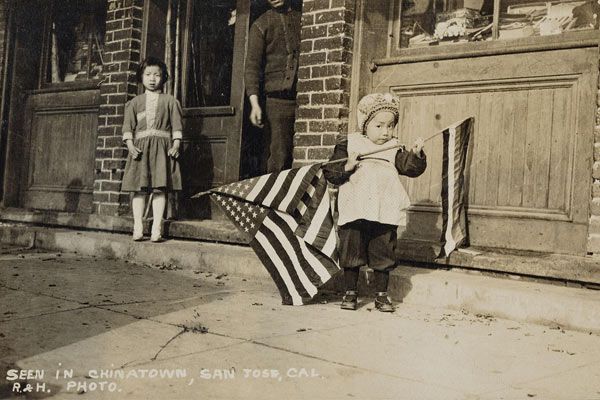
Postcards from a Young America - the Leonard A. Lauder Archive
RH Photo - Seen in China San Jose California - 1912
From 12 March to 25 July 2022, the Museum of Fine Arts, Boston presents "Real Photo Postcards Pictures from a Changing Nation", an exhibition of photographic postcards from the Leonard A. Lauder Collection.
Source: Museum of Fine Arts, Boston. Image: "Seen in Chinatown, San Jose, California," published by R & H Photo, 1912 or later. Leonard A. Lauder Postcard Archive
The United States of the early 20th century was a changing nation, expanding and welcoming immigrants from many different regions and cultures. Many of the most famous American painters of the time (George Bellows, John Sloan) captured this changing country realistically and honestly, and in the early years of the 20th century, a technological breakthrough led to the emergence of a new medium of artistic expression, making it possible to depict life in America's cities and towns, with their joys and miseries, their dramas and comedies. As the Museum of Fine Arts, Boston, explains in a press release:
In 1903, at the height of the worldwide craze for postcards, the Eastman Kodak Company unveiled a new product: the postcard camera. The device exposed a postcard-sized negative that could print directly onto a blank card, capturing scenes in extraordinary detail. Portable and easy to use, the camera heralded a new way of making postcards. Suddenly almost anyone could make photo postcards, as a hobby or as a business. Other companies quickly followed in Kodak’s wake, and soon photographic postcards joined the billions upon billions of printed cards in circulation before World War II.
"Real Photo Postcards Pictures from a Changing Nation" includes more than 300 works from the Leonard A. Lauder Postcard Archive, which will eventually be donated to the Museum of Fine Arts, Boston. "These cards particularly excite me because we learn from them both the grand historical narrative and the smaller events that made up the daily lives of those who participated in that history," said Leonard A. Lauder.
Read the full article

